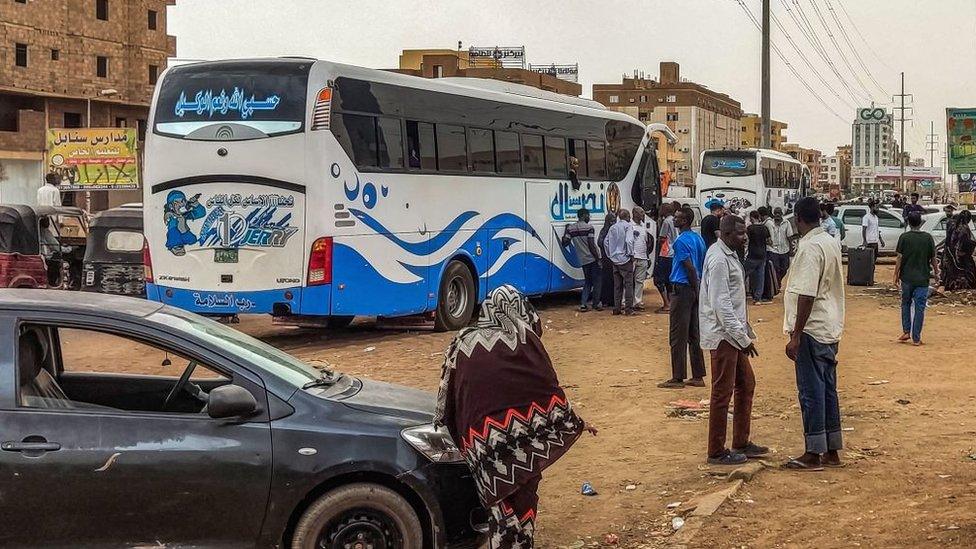Sudan: Evacuation flight carrying Britons arrives in UK
- Published
Watch: British nationals board UK military plane to be evacuated from Sudan
The first flight carrying British nationals escaping conflict-hit Sudan has landed in the UK.
The flight carrying 250 people from Larnaca Airport in Cyprus arrived at Stansted Airport on Wednesday.
British troops are organising the evacuation from the east African country, under cover of a ceasefire which is due to end at midnight on Thursday.
Eight flights are expected to leave Khartoum by the end of Wednesday.
The government has faced some criticism over the speed of the evacuations.
Trapped British nationals have been making their own way to an airstrip near the Sudanese capital Khartoum to get on RAF military flights which take them to Larnaca before their onward journey to the UK.
More than 300 British national have now boarded four evacuation flights from Sudan, the Foreign Office says. Eight will have left by the end of the day.
Home Secretary Suella Braverman sent reassurances that the government would be supporting British nationals and their dependents in the "fast moving and complex situation".
But she added there were no plans to introduce a legal route for people fleeing Sudan to claim asylum in the UK.
Alicia Kearns, chairwoman of the Commons foreign affairs select committee, said elderly people dependent on their British citizen children should be allowed on flights to the UK.
"In the same way we treat children who are dependent on their parents, we should respect that some elderly people are dependent on their children," she said.
Flights should include those who would "otherwise be left destitute and really vulnerable", she said.
There has been concern over whether the runway at the Khartoum airstrip will hold up over the next couple of days.
The BBC has learned from a well-placed source that it is beginning to break up due to the sheer numbers of aircraft taking off and landing.
If flights are no longer possible, people may then have to take the potential alternative route to Port Sudan on the Red Sea coast for a possible seaborne evacuation.
But government sources said they were aware of the issue with the runway and were confident it would not be a limiting factor in the flights.
Watch: Fleeing Sudan - first Britons to leave Cyprus for UK soil
Concerns have been raised about aircraft had been leaving Sudan with empty seats.
But Brigadier Dan Reeve, the most senior military official overseeing the evacuation, said it was the Foreign Office not the military deciding who was eligible to get on flights.
He also defended the decision not to escort people to the airport, even though some other countries have done this with their nationals.
Speaking to the BBC, he said: "This is not a race to get it wrong. In my professional judgement it would not be safe to bring people together in one location in Khartoum and seek to extract them.
"We've seen incidents of convoys being attacked."
Brig Reeve further explained he thought there had been a "good rate of flow" so far, adding the plan was move about 500 people a day on five aircraft.
Speaking to the BBC at Larnaca Airport, passengers said they were delighted to be going home, but reaching the flight had been difficult because of limited UK government help.
One man said he had to take a bus with his young family and had never been so scared.
Yahya Yahya told the BBC it was "a very difficult time" and he was "thankful that we've finally made it to a safe place".
A British man whose sister managed to be evacuated overnight told the BBC she felt an overwhelming sense of relief to have escaped.
He said at one point she and 13 others had only four dates and one egg left to share between them because it was not safe for them to go out to look for food.
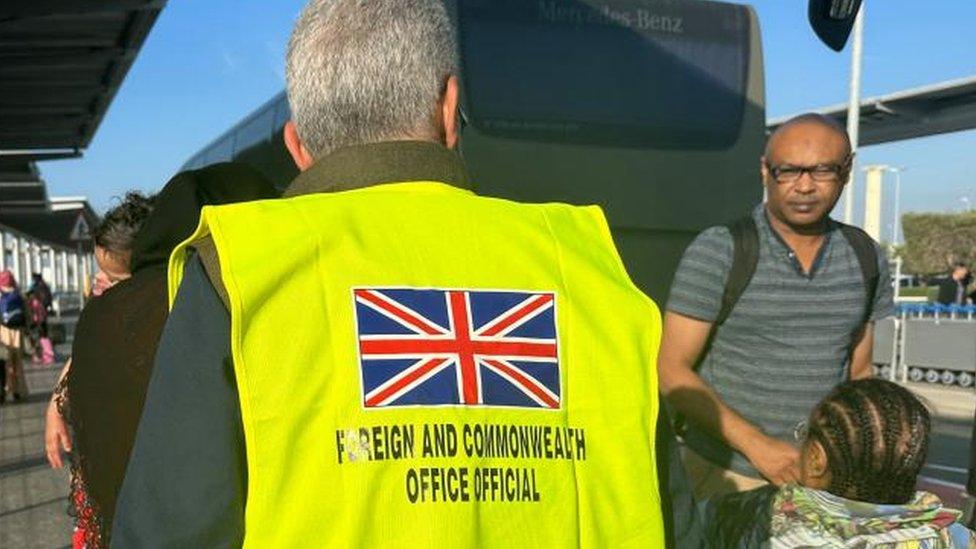
UK nationals arrived in Cyprus on Wednesday morning on their way back to the UK
Around 120 British troops are supporting the evacuation at the Wadi Saeedna airstrip. Downing Street said the British military would defend the airfield in Sudan but clarified efforts would be made to avoid "active engagement" with other forces.
Prime Minister Rishi Sunak's official spokesman said the "majority" of those on board the rescue flights were British nationals, but also included some allies' citizens.
"We're calling everyone forward and we have no issue with capacity, and people are being processed smoothly," he said, adding those travelling to the airport were not having significant issues.
Mr Sunak also told the House of Commons on Wednesday the UK "will continue to work to end the bloodshed in Sudan and support a democratic government"."I pay tribute to all those carrying out this complex operation," he said.
Clashes between the Sudanese army and paramilitary group the Rapid Support Forces (RSF) began on 15 April. Hundreds of people have since died and thousands have been injured in the conflict.
Airlifting large numbers of people out of Sudan has been complicated by major airports becoming battlegrounds, and movement out of the capital has been perilous.
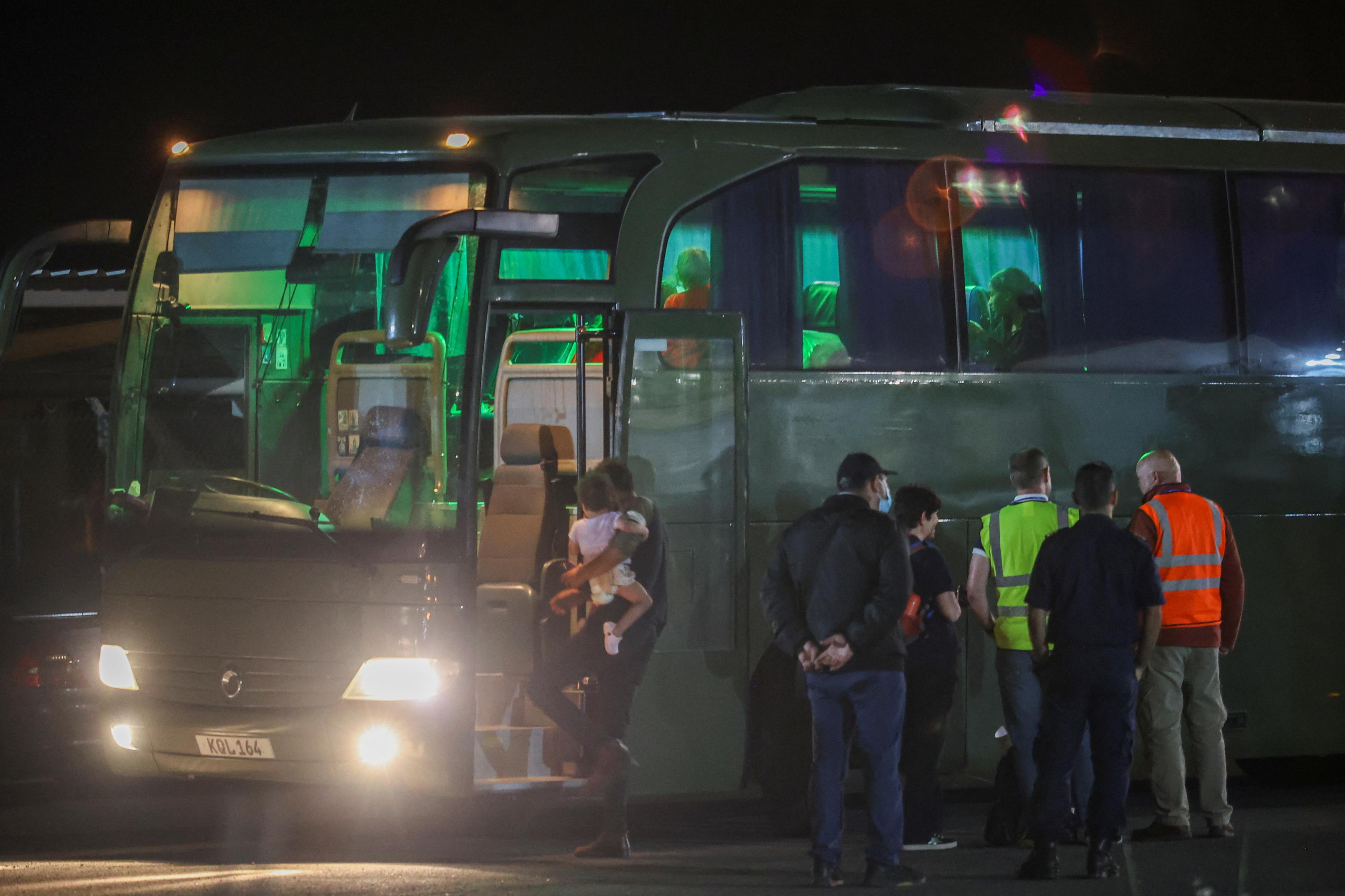
Young children were among the British nationals to arrive at Larnaca International Airport
The government is also considering a seaborne evacuation from Port Sudan, some 500 miles from the capital. HMS Lancaster and RFA Cardigan Bay have been sent to the region.
Only British passport holders and immediate family members with existing UK entry clearance are being told they are eligible for the evacuation flights.
Additional reporting by Rachel Russell.

Are you a British national who has been evacuated from Sudan? Are you still inside the country? If it is safe to do so, share your experiences by emailing haveyoursay@bbc.co.uk, external.
Please include a contact number if you are willing to speak to a BBC journalist. You can also get in touch in the following ways:
WhatsApp: +44 7756 165803
Tweet: @BBC_HaveYourSay, external
Please read our terms & conditions and privacy policy
If you are reading this page and can't see the form you will need to visit the mobile version of the BBC website to submit your question or comment or you can email us at HaveYourSay@bbc.co.uk, external. Please include your name, age and location with any submission.

BOARDROOM BATTLES: It's Australia's toughest job interview!
BOWELBABE IN HER OWN WORDS: The extraordinary life of Deborah James

Related topics
- Published25 April 2023
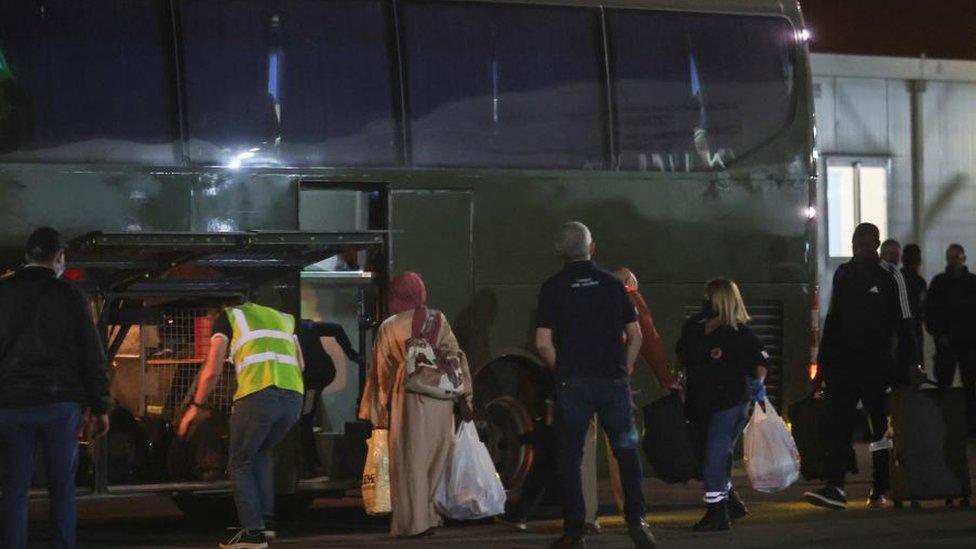
- Published25 April 2023
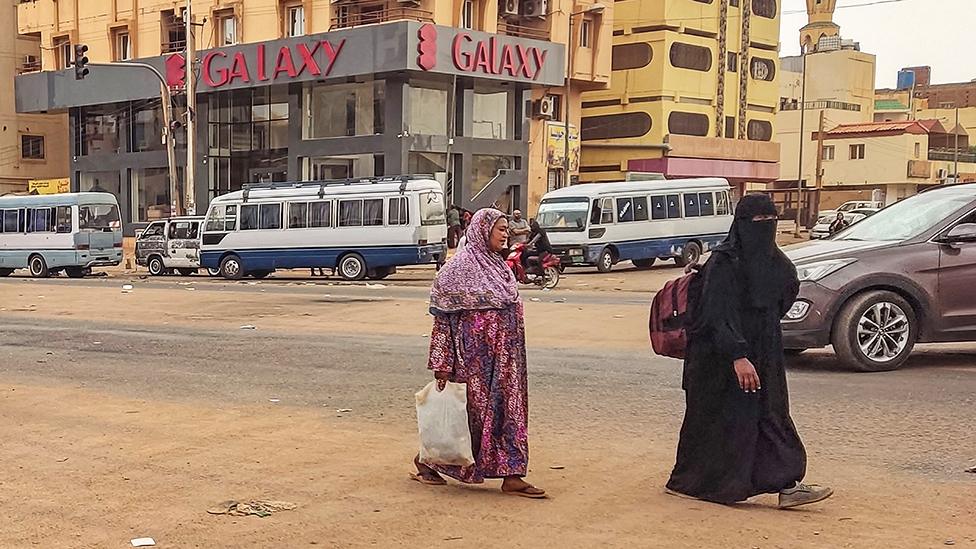
- Published26 April 2023
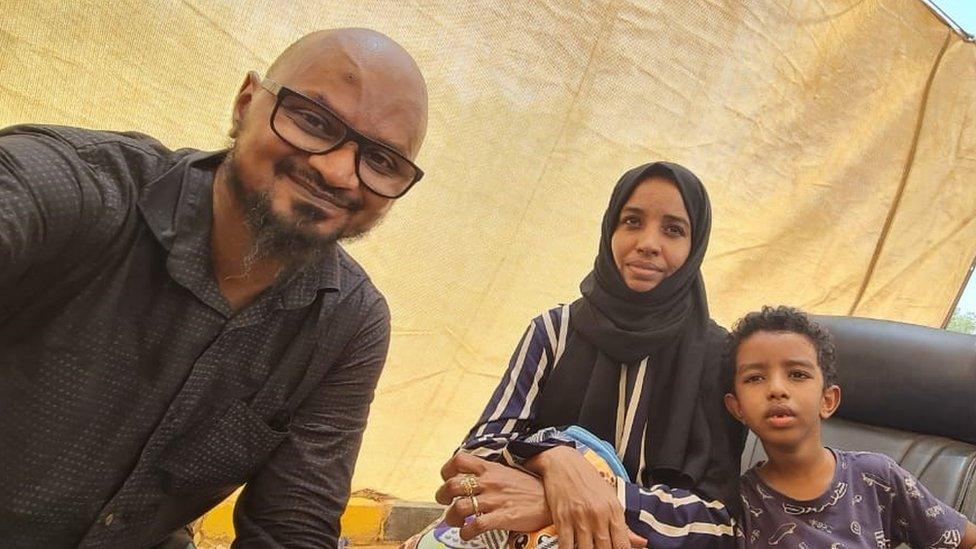
- Published24 April 2023
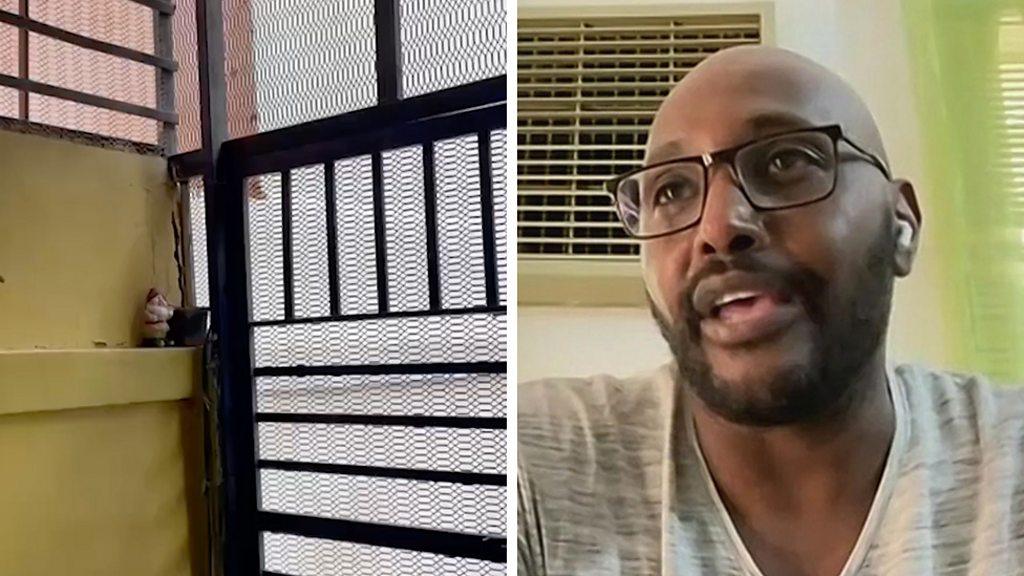
- Published24 April 2023
